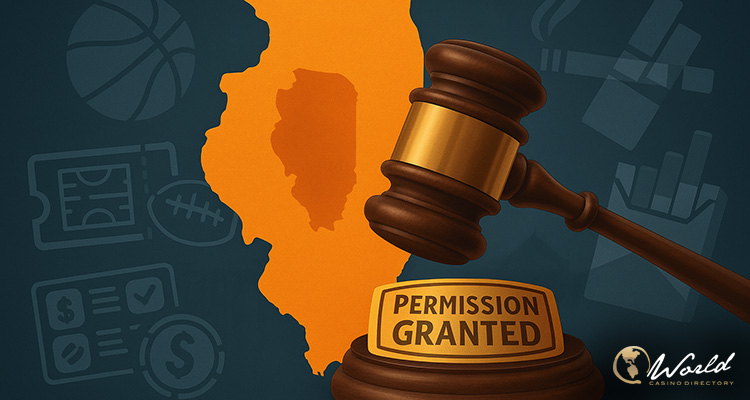In a late-night vote just minutes before the constitutional deadline, Illinois lawmakers passed a $55.2 billion state budget that introduces sweeping changes to the taxation of sports wagering. The new fiscal plan, approved strictly along party lines, imposes new fees on every online sports bet placed in the state and introduces the nation’s first progressive tax rate for sportsbooks based on revenue levels.
Governor J.B. Pritzker praised the budget for being the state’s seventh consecutive balanced financial plan, emphasizing continued investments in education, public safety, healthcare, and jobs. “It not only advances our state’s growing record of fiscal responsibility but also continues our investments in education, health care, public safety and jobs,” Pritzker said, according to NBC 5 Chicago.
New Fee Per Bet and Tiered Tax Structure Target Sportsbooks
Among the most notable provisions of the budget is a new per-bet fee on online sports wagers, a last-minute addition that stirred fierce resistance from the sports betting industry. Under the new structure, sportsbooks will be charged 25 cents per wager for the first 20 million bets placed each fiscal year. After reaching that threshold, the fee doubles to 50 cents for each subsequent bet.
According to estimates reported by the Chicago Tribune, this fee alone could generate approximately $36 million in annual revenue for the state.
These per-bet charges come on the heels of a previously enacted overhaul of Illinois’ sports betting tax system. Starting July 1, 2024, sportsbooks in the state became subject to a new progressive tax model—the first of its kind in the United States. Operators are now taxed on their adjusted gross revenue using a sliding scale ranging from 20% to 40%.
- $0–$30 million in adjusted gross revenue: 20% tax
- $30–$50 million: 25% tax
- $50–$100 million: 30% tax
- $100–$200 million: 35% tax
- Over $200 million: 40% tax
This system applies separately to online and retail sportsbook operations. Based on recent figures, major operators like FanDuel and DraftKings fall into the highest tier, paying the maximum 40% rate. FanDuel posted $421.3 million in adjusted gross revenue, while DraftKings reported $349.9 million.
Industry Pushback and Political Divisions
The sports betting industry mounted a rapid but ultimately unsuccessful campaign to block the per-bet fee. Operators issued last-minute email alerts to customers urging them to contact their representatives. Even Rob Gronkowski, a spokesperson for FanDuel, encouraged fans to protest the measure.
Despite these efforts, the proposal was pushed through by Democratic legislators in both chambers. The main budget bill passed the Illinois House 75–41 and the Senate 34–23—both votes occurring with almost no Republican support.
Republicans criticized the new taxes and accused Democrats of sidelining them from budget negotiations. “Rather than pursuing meaningful structural reforms to secure our state’s future, Democrats chose to prioritize political pay raises, steal from the rainy-day fund, and funnel money into their own pork projects,” said House Minority Leader Tony McCombie.
Rep. John Cabello (R-Machesney Park) also slammed the process for its lack of transparency, saying, “We’re rushing this process like we always do. ‘Let’s hide this stuff. Let’s hide it so that the public doesn’t see it until it’s too late.’”
Broader Budget Context: A Win with Caveats
While Governor Pritzker emphasized fiscal responsibility, the revenue plan relied heavily on increased taxes, including those targeting tobacco products, out-of-state businesses, and sports wagering. The state’s effective tobacco tax rate rises to 45%, and remote sellers earning $100,000 or more in Illinois must now collect sales taxes even without a physical presence.
Despite the revenue increases, some priorities went unfunded. Lawmakers failed to address a $770 million funding gap for Chicago-area transit services. Efforts to advance funding for a new Chicago Bears stadium also stalled.
Still, Democratic leaders framed the final budget as a responsible compromise amid economic uncertainty. “We all wish we could do more,” said Senate President Don Harmon. “But this is a responsible, balanced budget that continues our work to improve the lives of the great people of the great state of Illinois.”
The governor is expected to officially sign the budget into law, finalizing Illinois’ most aggressive move yet in reshaping its sports betting tax regime.



